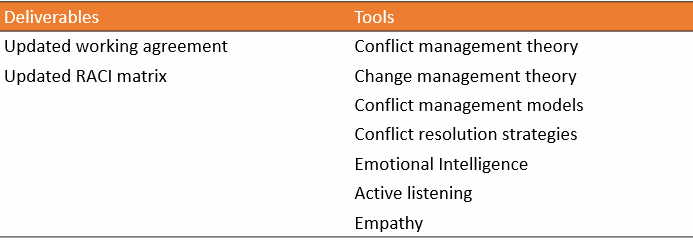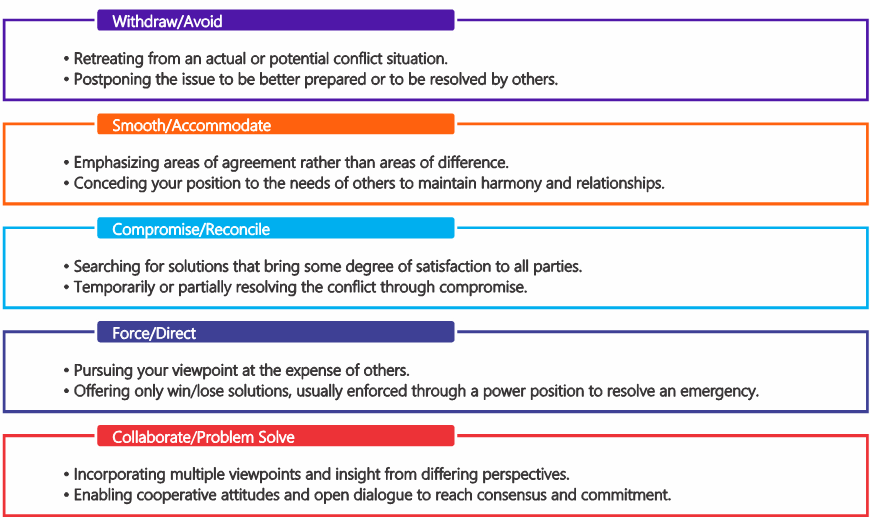Manage conflict
Enablers
- Interpret the source and stage of the conflict. (ECO 1.1.1)
- Analyze the context for the conflict. (ECO 1.1.2)
- Evaluate/recommend/reconcile and track effectiveness. (ECO 1.1.3)
- Identify the root cause of the misunderstanding. (ECO 1.10.1)
- Investigate potential misunderstandings. (ECO 1.10.4)
Deliverables, and Tools

The Project Manager's Role
- Managing conflict is a responsibility of all stakeholders.
- The PM heavily influences the direction and handling of conflict.
- Interpersonal and team skills help to ensure positive results when handling conflict.
- In agile projects, the project manager may assist in conflict resolution while the team is empowered to resolve conflicts.
- As a servant leader, a project manager can assist in the removal of impediments or sources of conflict to support the team’s performance.
Causes of Conflict
- Competition.
- Differences in objectives, values, and perceptions.
- Disagreements about role requirements, work activities, and individual approaches.
- Communication breakdowns.
Conflict Management
- Application of one or more strategies for dealing with disagreements.
- Effective conflict management can lead to improved understanding, performance, and productivity.
- Ineffective or nonexistent conflict management can lead to:
- Destructive behavior
- Animosity
- Poor performance
- Reduced productivity
- Use various conflict resolution methods
Change Management Theory
Refer to useful organizational change management models:
- McKinsey 7-S Model
- Kotter’s Theory
Managing changes in project and organizations requires different strategies depending on circumstances, people involved, and timing.
Important to have a robust theory and approach to change management to support the business goals and needs.
Embracing change as a strategy helps organizations balance investment and risk, be more flexible, and ensure maximum ROI.
Change management is an essential capability and a significant professional practice it its own right.
Conflict Management Approaches

Team Charter
A team charter is defined as a document that records the team values, agreements, and operating guidelines as well as establishing clear expectations regarding acceptable behavior by project team members.